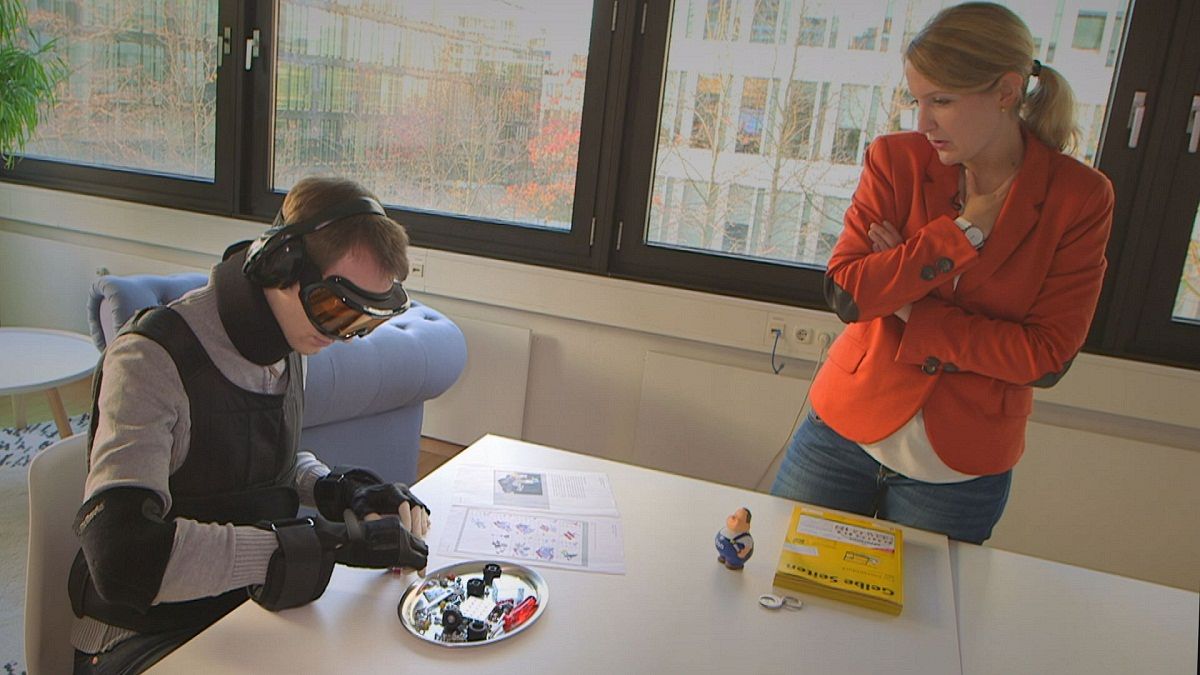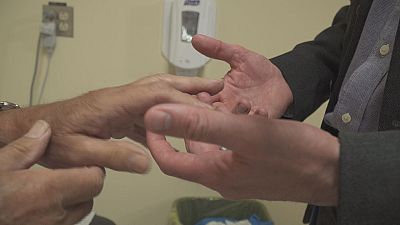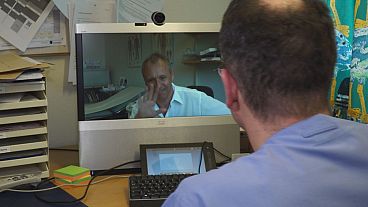Company doctors have a new role looking out for early signs of chronic conditions such as diabetes and musculoskeletal disorders.
The role of the company doctor is changing, with a shift towards preventive healthcare in the workplace. Germany is at the forefront of that change, with the ageing population motivating this fresh focus on keeping staff fit right up to retirement.
We met Dr Wolfgang Panter, an occupational health physician at steelmaker HKM, at his practice in the industrial city of Duisberg.
He explains how he now uses regular workplace check-ups to look out for risks such as diabetes, obesity, and muscular-skeletal disorders, before they become a problem.
“We see people who at first glance seem healthy. But then during the check up we notice that the sugar, the weight, or the blood pressure is borderline, and something has to be done. I believe this is a very important task for company doctors, to support the social security system at this point ,” he tells Euronews.
The shift to prevention is reinforced by Germany’s new Preventive Healthcare Act, which comes into force in January. It was supported by politician Rudolph Henke, a qualified doctor and the rapporteur on the legislation for Angela Merkel’s CDU party.
“In Germany we spent 10 years discussing whether the right way is to promote prevention on an individual level, or to improve the frameworks in places in which people live their lives,” he explains.
“Now this debate is finally over, with the result that we have to do both, both things are right. This means that at the workplace, in the company, programmes have to be created in which health is promoted and prevention is put centre stage. “
Putting the Act into practice requires the support of the statutory health insurers that cover all workers in Germany. We met one of them, pronova BKK, in Leverkusen.
Ulrich Rosendahl, Head of occupational health at the firm, advocates tailored solutions.
“The interesting thing is really that we reach out to the employees at their workplace. An employee in an office needs different things to one who is standing at a machine. So we go into the companies and we look at what the conditions are like, how are the people behaving, and how can we in cooperation with the company and company doctors find solutions so that a given employee needs a given programme.”
Developing such employee-specific prevention programmes can mean applying some innovative techniques. Research organisation IFAA has a special suit to help employers and employees understand what it’s like to be an older worker.
It adds weight and restricts movement, as researcher Anna Peck explains: “This vest contains many weights, therefore the person that is wearing this suit has only limited movement and thus feels many years older.
IFAA has a very practical approach, taking the suit to the workplace to help companies develop better work stations and teach trainees about the experience their older colleagues may have. “Young employees who wear this suit experience age first hand. That means they have the possibility to feel 30 to 40 years older, and therefore to really experience age related limitations in real life,” Anna explains.
Back at Dr Panter’s practice we asked him what he, as a doctor on the frontline of occupational health, thinks of Germany’s Prevention Act.
“In my opinion the most important point is that the law has been passed. The second point is that I believe that the world of politics needs to put in a lot of effort in to really anchor the awareness of prevention in the public mind. We don’t have that yet,” he says.
Prevention can only go so far – at a certain point individuals have to assume responsibility for their own health.



